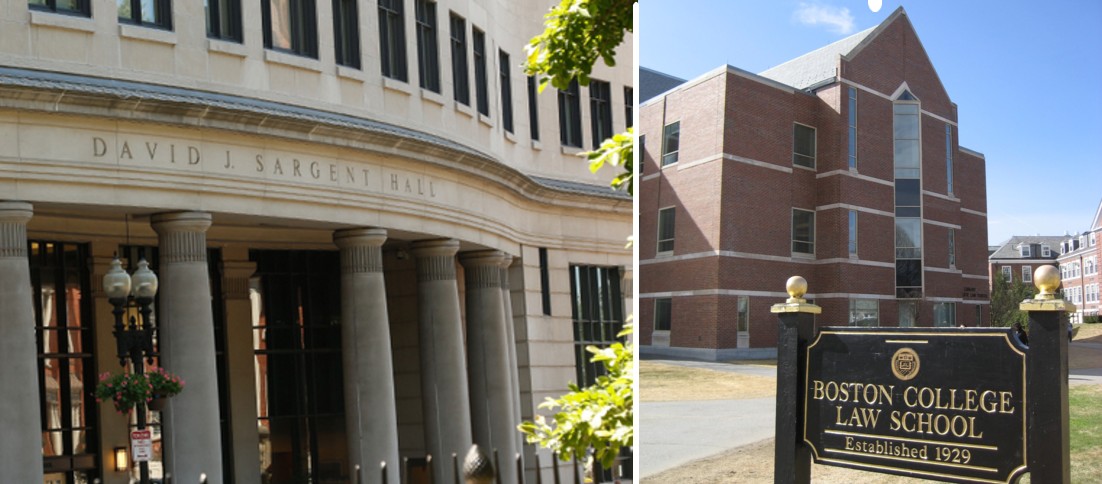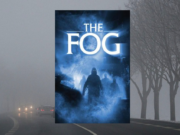
by Mary W Maxwell, PhD, LLB
So now we have read the 20 questions about the Tsarnaev case, which is more than enough to show that the case was a crock. We might thus wonder where the well-paid law professors stand on the issue.
If you have a son or daughter looking for a law school, I suggest you write to some of these prestigious persons and see how they feel about the Marathon travesty. Below is a list of 56 professors at the Catholic law school of Boston College, and 77 from Suffolk. I’ll give the Catholics first billing as I personally expect more from a religion-based academy.
If you get in touch with some of these professors, in regard to Jahar’s conviction, please let us know. They have special expertise in, say, the rule about destroying evidence, or the ethics of pressuring an accused’s family to obtain a guilty plea. They may offer guidance as to the way jurors judge a witness who changes his story several times.
There are whole books written about those topics. Below you will find the mission statement for each of the two schools. A faculty member today could re-read the mission statement and see of there is any fit.
Boston College Law School — Mission Statement
We search for opportunities to instill in our students the moral and ethical application of law. Our commitment is to foster new insights through research, to impart knowledge and to critically evaluate the role of legal institutions.
B.C. Law – 56 Faculty Members
Richard Albert, Associate Professor/
Alexis Anderson, Associate Clinical Professor/
Filippa Marullo Anzalone, Professor and Associate Dean for Library and Technology Services/
Paulo Barrozo, Associate Professor/
Sharon Beckman, Associate Clinical Professor/
Mary Sarah Bilder, Professor/
Robert M. Bloom,Professor/
E. Joan Blum, Associate Professor of Legal Reasoning, Research & Writing/
Mark S. Brodin, Michael and Helen Lee Distinguished Scholar Professor/
George D. Brown, Robert Drinan, S.J., Professor of Law/
R. Michael Cassidy, Professor and Faculty Director, Rappaport Center for Law and Public Policy/
Mary Ann Chirba, Professor of Legal Reasoning, Research & Writing/
John C. Ford, S.J. Distinguished Scholar/
Daniel R. Coquillette, J. Donald Monan, S.J., University Professor/
Scott T. FitzGibbon, Professor/
Frank J. Garcia, Professor of Law/
Jane Kent Gionfriddo, Professor of Legal Reasoning, Research & Writing/
Kent Greenfield, Professor of Law and Dean’s Research Scholar/
Dean M. Hashimoto, Associate Professor/
Frank R. Herrmann, S.J., Associate Professor/
Ingrid Michelsen Hillinger, Professor/
Mary Holper, Associate Clinical Professor; Director, Immigration Clinic/
Kari Hong, Assistant Professor/
Renee Jones, Professor/
Gregory A. Kalscheur, Dean, Morrissey College of Arts and Sciences, Associate Professor/
Daniel Kanstroom, Professor of Law & Thomas F. Carney Distinguished Scholar
Associate Director of the Boston College Center for Human Rights & International Justice/
M. Cathleen Kaveny, Darald and Juliet Libby Professor/
Elisabeth Keller, Associate Professor of Legal Reasoning, Research & Writing/
Ken I. Kersch, Department of Political Science/
Thomas C. Kohler, Professor/
Joseph P. Liu, Professor/
Daniel Lyons, Associate Professor/
Ray D. Madoff, Professor/
Patricia A. McCoy, Liberty Mutual Insurance Professor of Law/
Judith A. McMorrow, Professor/
Alan Minuskin, Associate Clinical Professor/
David Olson, Associate Professor of Law/
Lynnise E. Pantin, Clinical Associate Professor/
Vlad F. Perju, Associate Professor of Law/
Director, Clough Center for the Study of Constitutional Democracy/
Zygmunt J.B. Plater, Professor/
Diana C. Pullin, Professor , Educational Leadership and Higher Education Department
Affiliate Professor, Boston College School of Law/
Brian JM Quinn. Associate Dean for Experiential Learning, Associate Professor of Law/
James R. Repetti, William J. Kenealy, S.J., Professor/
Diane Ring, Professor/
James Steven Rogers, Professor/
Vincent D. Rougeau, Dean [From the dean’s website]:
Boston College and its Law School are rooted in the Jesuit, Catholic tradition of intellectual excellence and service, and seek to promote the integration of faith and justice through curricular offerings and extracurricular projects.
Evangeline Sarda, Associate Clinical Professor/
Francine Sherman, Clinical Associate Professor; Director, Juvenile Rights Advocacy Project/
Natalya Shnitser, David and Pamela Donohue Assistant Professor/
Mark Spiegel, Professor/
Judith B. Tracy, Associate Professor of Legal Reasoning, Research & Writing/
Paul R. Tremblay, Clinical Professor of Law/
Catharine Wells, Professor/
Herbert P. Wilkins, Huber Distinguished Visiting Professor A.B., LL.B., Harvard University/
David A. Wirth, Professor/
Norah Wylie, Visiting Assistant Professor of Legal Reasoning, Research & Writing/
Alfred Chueh-Chin Yen, Professor and Associate Dean of Faculty
Katharine G. Young, Associate Professor of Law/
— end of Boston College List of faculty.
Suffolk’s Mission Statement
Suffolk University is a talent catalyst that recognizes and develops student potential. Leveraging our location in the heart of Boston, our faculty, staff, and alumni work together to provide a student-centered experience. This diverse community builds on its dedication and excellence in education and scholarship to empower graduates to be successful locally, regionally, and globally.
Suffolk College of Law — 77 Faculty Members
Hilary J. Allen , Associate Professor of Law, LL.B., University of Sydney; LLM, Georgetown University/
Marie Ashe, Professor of Law, BA, Clark University; MA, Tufts University; JD, University of Nebraska/
R. Lisle Baker, Professor of Law, BA, Williams College; LLB, Harvard University/
Andrew Beckerman-Rodau, Professor of Law and Co-Director Intellectual Property Law Concentration, BS, Hofstra University; JD, Western New England College; LLM, Temple University/
Virginia Benzan, Immigration Clinic Fellow/
William Berman, Clinical Professor of Law, BA, Union College; JD, Boston University/
Carter G. Bishop, Professor of Law, BS, Ball State University; MBA, JD, Drake University; LLM, New York University/
Karen Blum , Professor of Law, BA, Wells College; JD Suffolk University; LLM Harvard University/
Eric Blumenson, Research Professor of Law, BA, Wesleyan University; JD, Harvard University/
Sarah Boonin , Associate Clinical Professor of Law, BA, Duke University; JD, Harvard University/
Barry Brown, Professor of Law, AB, EdM, JD, Harvard University/
Stephen J. Callahan, Professor of Law, AB, Middlebury College; JD, Suffolk University/
Rosanna Cavallaro, Professor of Law, AB, JD, Harvard University/
Gerard J. Clark, Professor of Law, BA, Seton Hall University; JD, Columbia University/
Meredith Conway, Professor of Law, BA, Drew University; JD, Rutgers University; LLM, New York University/
Frank Rudy Cooper, Professor of Law, BA, Amherst College; JD, Duke University/
William T. Corbett, Professor of Law, AB, Providence College; MBA, Boston College; JD, Suffolk University; LLM, Boston University/
Rebecca Curtin , Assistant Professor of Law, A.B., Princeton University; J.D., University of Virginia; Ph.D., Harvard University/
David Christopher Dearborn, Associate Clinical Professor of Law, BA, St. Lawrence University; JD, Vermont Law School/
Sabrina DeFabritiis, Professor of Legal Writing, BA, Boston College; JD, Suffolk University/
Sara A. Dillon, Professor of Law and Co-Director International Law Concentration, BA, St. Michael’s College; MA, University of Wisconsin-Madison; MA, PhD, Stanford University; JD, Columbia University/
Victoria Dodd, Professor of Law, BA, Radcliffe College; JD, University of Southern California/
Steven M. Eisenstat, Professor of Law, BA, MEd, State University of New York, Buffalo; JD, Northeastern University/
Kathleen C. Engel, Research Professor of Law, A.B., Smith College; JD, University of Texas/
Valerie C. Epps, Research Professor of Law, BA, University of Birmingham, England; JD, Boston University; LLM, Harvard University/
Bernadette Feeley, Clinical Professor of Law, BS, JD, Suffolk University/
Steven Ferrey, Professor of Law, BA, Pomona College; MA, JD, University of California, Berkeley/
Joseph Franco, Professor of Law, BA, University of Notre Dame; MA, JD, Yale University/
Shailini Jandial George, Professor of Legal Writing, BS, Miami University of Ohio; JD, Boston College/
Christopher Gibson, Professor of Law and Director Business and Financial Services Concentration, BA, University of Chicago; MPP, Kennedy School of Government, Harvard University; JD, University of California, Berkeley/
Joseph W. Glannon, Professor of Law, BA, MAT, JD, Harvard University/
Dwight Golann, Professor of Law, BA, Amherst College; JD, Harvard University/
Lorie M. Graham, Professor of Law and Co-Director International Law Concentration, BS, JD, Syracuse University; LLM, Harvard University/
Marc D. Greenbaum, Professor of Law and Co-Director Employment Law, BA, Rutgers University; JD, Boston College/
Janice C. Griffith, Professor of Law, BA, Colby College; JD University of Chicago/
Leah Chan Grinvald , Associate Professor of Law, BA, George Washington University; JD, New York University/
Stephanie Roberts Hartung, Professor of Legal Writing, BS, Northwestern University; JD, Boston College/
Stephen C. Hicks, Professor of Law, MA, LLB, Cambridge University, England; LLM, University of Virginia/
John Infranca, Assistant Professor of Law, BA, MTS, University of Notre Dame; JD, New York University/
Diane S. Juliar, Clinical Professor of Law, BA, University of Michigan; JD, Harvard University/
Philip C. Kaplan, Associate Professor of Academic Support, BS, Bentley College; JD, Suffolk University/
Maritza Karmely, Associate Clinical Professor of Law, BA, Boston College; JD, Boston University/
Bernard V. Keenan, Professor of Law, BA, College of the Holy Cross; JD, Georgetown University; LLM/
Rosa Kim, Professor of Legal Writing, BA, Tufts University; MA, Johns Hopkins University; JD, Boston College/
Charles P. Kindregan, Professor of Law, BA, MA, LaSalle University; JD, Chicago-Kent College of Law of the Illinois Institute of Technology; LLM, Northwestern University/
Renee M. Landers, Professor of Law and Director Health Law Concentration, AB, Radcliffe College; JD, Boston College/
Jeffrey Lipshaw, Professor of Law, AB, University of Michigan; JD, Stanford University/
Stephen Michael McJohn, Professor of Law, BA, JD, Northwestern University/
Elizabeth M. McKenzie, Professor of Law, BA, Transylvania University; JD, MSLS, University of Kentucky/
Kim McLaurin, Associate Dean for Alumni and External Affairs and Clinical Professor of Law, BS, Hampton University; JD, Brooklyn Law School/
Samantha A. Moppett, Professor of Legal Writing, BA, Bucknell University; JD, Suffolk University/
Russell G. Murphy, Research Professor of Law, BA, University of Massachusetts; JD, Suffolk University/
Sharmila Murthy, Assistant Professor of Law, BS, Cornell University; MPA, JD, Harvard University/
Camille Nelson, Professor of Law, BA, University of Toronto; LLB, University of Ottawa; LLM, Columbia University/
Dyane O’Leary, Assistant Professor of Academic Support, BA, Villanova University; JD, Suffolk University/
Bernard M. Ortwein, Professor of Law, BA, University of Richmond; JD, Suffolk University; LLM, Harvard University; Doctor of Laws (Hon.) Lund University (Sweden)/
Marc G. Perlin, Professor of Law, BA, Boston University; JD, Northeastern University/
Andrew M. Perlman, Dean and Professor of Law, BA, Yale College; JD, Harvard University; LLM, Columbia University
Note for Dean, from Suffolk’ website:
Core Values: Suffolk University believes in the integration of civic engagement and service learning throughout the curriculum to foster the development of responsible global citizens. We are committed to acting ethically, professionally, and collaboratively.
Richard G. Pizzano, Professor of Law, AB, JD, Suffolk University/
Jeffrey Pokorak, Vice Provost for Faculty and Curriculum, Professor of Law, BA, State University of New York; JD, Northeastern University/
Anthony P. Polito, Professor of Law, SB, Massachusetts Institute of Technology; JD, Harvard University; LLM, New York University/
Herbert N. Ramy, Director and Professor of Academic Support, BA, University of Massachusetts; JD, Suffolk University/
Elbert L. Robertson, Professor of Law, BA, Brown University; MA, University of Pennsylvania, Wharton School of Business; JD, Columbia University/
Marc A. Rodwin, Professor of Law, BA, Brown University; BA, MA, Oxford University; JD, University of Virginia; Ph.D., Brandeis University/
Charles E. Rounds, Jr, Professor of Law, BA, Columbia University; JD, Suffolk University; Certificate in German, Defense Language Institute (Monterey)/
Michael Rustad, Thomas F. Lambert Jr. Professor of Law and Co-Director Intellectual Property Law Concentration, BA, University of North Dakota; MA, University of Maryland; PhD, Boston College; JD, Suffolk University; LLM, Harvard University/
Ilene Seidman, Associate Dean for Academic Affairs and Clinical Professor of Law, BA, City College of New York; JD, New England School of Law/
Ragini Shah, Associate Clinical Professor of Law and Director of Clinical Programs, BA, Northwestern Univeristy; JD, Northeastern University/
Patrick Shin, Associate Dean for Academic Affairs and Professor of Law, A.B., Dartmouth College; J.D., Harvard Law School; Ph.D., Harvard University/
Linda Sandstrom Simard, Professor of Law, BS, University of Delaware; JD, Boston College/
Robert H. Smith, Professor of Law, AB, Wesleyan University; JD, University of Chicago/
Elizabeth Z. Stillman, Associate Professor of Academic Support, BA, Tufts University; JD, Northeastern University/
Gabriel H. Teninbaum Professor of Legal Writing, Director of the Institute on Law Practice Technology & Innovation, Director of the Law Practice Technology Concentration, BA, Georgetown University; MM, Cambridge College; JD, Suffolk University/
Elizabeth Trujillo, Professor of Law, BA, JD, University of Houston/
Kathleen Elliott Vinson Professor of Legal Writing and Director of Legal Writing, Research, and Written Advocacy, BA, Stonehill College; JD, Suffolk University/
Timothy Wilton, Professor of Law, AB, JD, LLM, Harvard University/
Jeffrey D. Wittenberg, Professor of Law, BA, San Francisco State University; JD, University of California, Hastings/
David C. Yamada, Professor of Law & Director, New Workplace Institute and Co-Director Employment Law, BA, Valparaiso University, Indiana; MA, Empire State College; JD, New York University/
Note: the above mission statements can’t hold a candle to what Northeastern Law (in Boston) promises on its website:
Northeastern University Law School. Our mission — to fuse theory and practice with ethical and social justice ideals so students understand what lawyers do, [and] how they should do it. [We help] reflect critically upon law and its impact on individuals, enterprises, and communities. We value intellectual inquiry, critical thinking, vigorous exchange and testing of ideas. We are devoted to the pursuit of social justice. We believe we have an obligation to advocate for individuals and groups who are underrepresented, less powerful or less economically secure domestically and abroad.
Holy cow!
— Mary W Maxwell is a graduate of Adelaide Law School
Photo credits: BC Law -- static.panoramio.com Suffolk: suffolk.edu






























Thanks for this information. I am sure I will put it to good use.
I’m sure you will.
Northeastern University is also very well known for recruiting informants etc for the FBI. Dun Meng attended Northeastern University.
Thanks, Cheryl. Maybe that’s what Northeastern’s mission statement means when it says:
“[We help] students understand what lawyers do.”
I wish someone would help ME understand what lawyers do. How can it be that Bruck, Fick, Ortiz, Clarke, Weinreb, and several more behaved the way they did in Jahar’s case?
I honestly do not get it. Not one of them could have believed Dun Meng’s ludicroous carjack story. Or … or… could they?
Even if we say that an immigrant (such as Dun Meng) is at the mercy of “government” re possible deportation, that would only explain how HE could be tempted. It would not explain the behavior of the two “teams” of lawyers.
And please don’t say they did it for money. They are my age; we had training to carry out professional responsibilites in good faith. I am sure that is as much a (lifelong) motivator as a few more bucks in the bank account.
HELP!
Of course they didn’t do it for money. The prosecutors, I believe, do it for the pleasure, the satisfaction, the adrenaline high, the prestige, to climb that social ladder, and to please their boss. They must win at any cost and almost always do with no regard for innocent or guilt-that doesn’t matter, and it helps that they are socio and psychopaths. They also have the full support of the justice system including judges, who are the same kind of people they are. As for the defense in this case, all I can say is that they will pay for what they did and didn’t do, no matter how long it takes. God’s true justice will prevail.
The Northeastern University noble creed has little to nothing to offer in the ripple effect with regards to the Australian arbitration courts that is a set up for those seeking justice or truth in these covert courts held in secretly is a abomination to reason, a perverted institute that should be investigated having no regard to what should be a noble calling of those who profess to a greater insight and enlightenment with regard to the human dilemma which can become and is for some not only a expensive miscarriage of justice but also harm to the individual and becomes a farcical pantomime with the starplayers called lawyers.
Dear Don, First of all congrats on composing a 108-word sentence that is easy to read. You are driving at a point that needs to be put on the table for immediate discussion: Are we headed to a life without law? Just imagine it. NO LAW.
Just IMAGINE it.
It is fortunate the sentence is not a composition of 1080 word long sentence or a life sentence? the new parliamentarians as meaning the newer parties, are unable to comprehend or manage the technical jargon of new laws put to them? this is because the big parties have a agenda that is giving these newcomers not enough time to figure out the implications of what the small print infers? the language used is no longer a common language used this meaning is for the mystification of the public.
If we contrast Trumps language prior to election and after it is possible for the common man to clearly understand, as lawyers and accountants form most of parliament instead of visionaries and ideas are our down fall, instead of lawyers being trades personnel to write out the meaning in English are now technical bureaucrats who inform us what we are and decide or manipulate what we are?
As recent in parliament two of the supposedly most informed layers fought as to what the meaning of law and significance is? and the outcome was one resigned from there post, if the lawyers cannot decide as to what law is about? what sort of reality of the so called educated are we in?
The language of law is now so obscure as to no longer be understood by most people? this is important to the elite for the control of the brain of the many?
I thought “Thou shalt not kill” was not exactly obscure.
Hey Don, who are the fighting parliamentarians that you mentioned?
Mary I am not referring to the Ten Commandments, although the comment on the commandments are explicit to all, I refer to what passes today as law? As you are so intelligent I and informed on law? you might put some of your knowledge in a contribution to a rewriting of a credible Constitution for Australia rather than a hack concoction of what is supposed to be the Australian Constitution, which unlike the American Constitution not only in spirit but understandable to-most.
I refer to Brandis and the ex Solicitor General Justin Gleeson.
Stand over tactics of lawyers such as Brandis are political scum, at present the political arena in Australia has reached new depths of depravity, much of this conundrum is the basis of Australian law is not for the people but for establishment elites.
Who, exactly, is “we” ?
What particular law are you talking about ?
One of the 10 commandments is “though shalt not murder”;there’s no prohibition on killing.The respective judges aren’t given any special grooming,status or privilege; they must tend the flock & till the ground just like everybody else.The overarching theme is freedom of choice “choose this day who you will serve” (Joshua 24:15)
Berry, “the overarching theme” of what?
The journey/promised land.
Twelve tribes have managed to flee from extreme oppression. In order to keep moving in the same direction they must learn to do/ not do certain things. They must learn to understand the power of choice.
At this point in time there’s no nation on earth that’s based on that model. That doesn’t mean that nobody’s following it but there’s no such thing as a Godly institution.
A good distinction between killing and murder? not enough work has been done between defining existential death and physical death? or and murder?
From my limited knowledge, it seems that most lawyers are members of Freemasonry, so they have the same boss and are expected to bring about the required result in court cases, no matter what side they present.